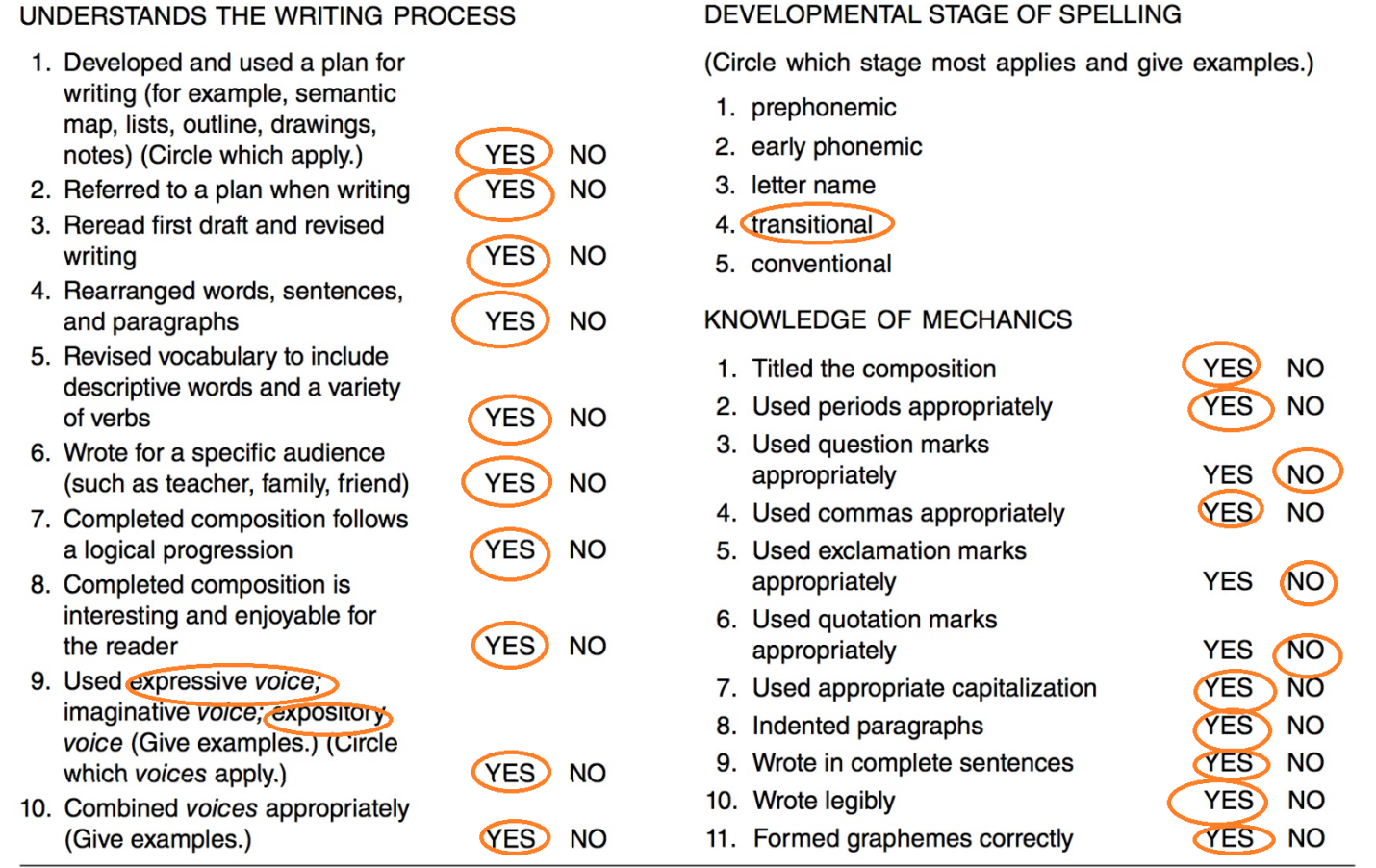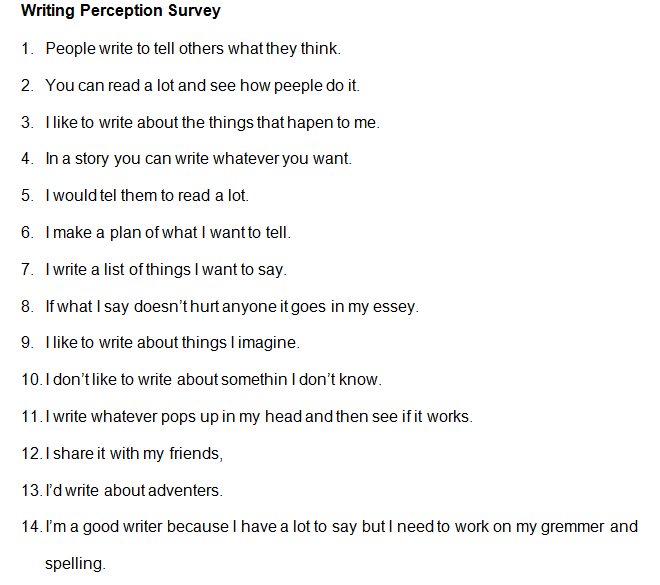Assessment
The academic progress of a ten-year-old boy named Alex (Grade 5) was assessed with the help of a range of tests.
Spelling Development Assessment
The evaluation of the learner’s skills has shown that he was capable of performing well in the test. Alex made only one mistake by misspelling “peeked” (“peaked”), whereas the rest of the words were written correctly.
Writing Sample
Introduction
Based on a previously designed rubric, the writing sample submitted by the learner met the expectations. Alex managed to use his potential as a learner to the fullest and deploy all of his writing skills. He demonstrated good writing techniques, i.e., coherent arguments, excellent spelling, and a perfect understanding of the sentence structure. A sample of the student’s writing is provided below.
Sample
Why I Like Video Games
I like to play video games. Their cool and fun. I play with my friends. We tolk and play together. I have great scores and it makes me feel happy.
As the essay provided above shows, the learner is capable of structuring the paper well. The introduction, body, and conclusion are delineated clearly. Some spelling issues (“their” instead of “they’re” and “tolk” instead of “talk”) are present. However, the learner also managed to spell a range of quite difficult words (e.g., “video,” “together,” “score,” and “great”) correctly. Therefore, a stronger emphasis must be placed on using a vast range of techniques (e.g., memory cards) to help Alex memorize the correct spelling.
Developmental Writing Checklist

As the text provided above indicates, the learner currently is at the transitional stage of his spelling skills development. Alex differentiates between different spelling options and can choose the correct one. However, further support is required to ensure that he develops an intuitive understanding of spelling and, thus, will be able to memorize the spelling of complicated words correctly. In other words, he needs to train the ability to identify spelling patterns.

The results of the writing perception survey point to the fact that Alex has reached the stage at which he can engage in critical self-analysis. Thus, it will be necessary to use the teaching strategies that will allow him to acquire analytical skills to write coherently. The fact that Alex prefers to avoid writing about the things to which he does not relate implies that he needs to develop the ability to approach the writing process critically. Furthermore, Alex could use creative thinking techniques as the means of spurring his writing process and retain his enthusiasm for it. His ability to fight the writer’s block indicates that he has acquired an impressive amount of independence as a learner and has advanced significantly.
Self-Assessment Post-Writing Questionnaire
The results of the questionnaire indicate that the learner is capable of using a variety of techniques when engaging in creative writing. However, Alex is experiencing difficulties with academic writing. Apart from minor issues in spelling, he needs to work on editing and proofreading his work. Alex should work on combining his ability to think creatively with the necessity to approach his work critically. His confidence as a writer and his imagination is his primary assets, yet he needs to improve his technique. With the introduction of appropriate memory techniques and enhancement of his critical skills, the learner is bound to show impressive progress.
Work Cited
Gipe, Joan. Multiple Paths to Literacy: Assessment and Differentiated Instruction for Diverse Learners, K-12. 8th ed., Pearson, 2013.